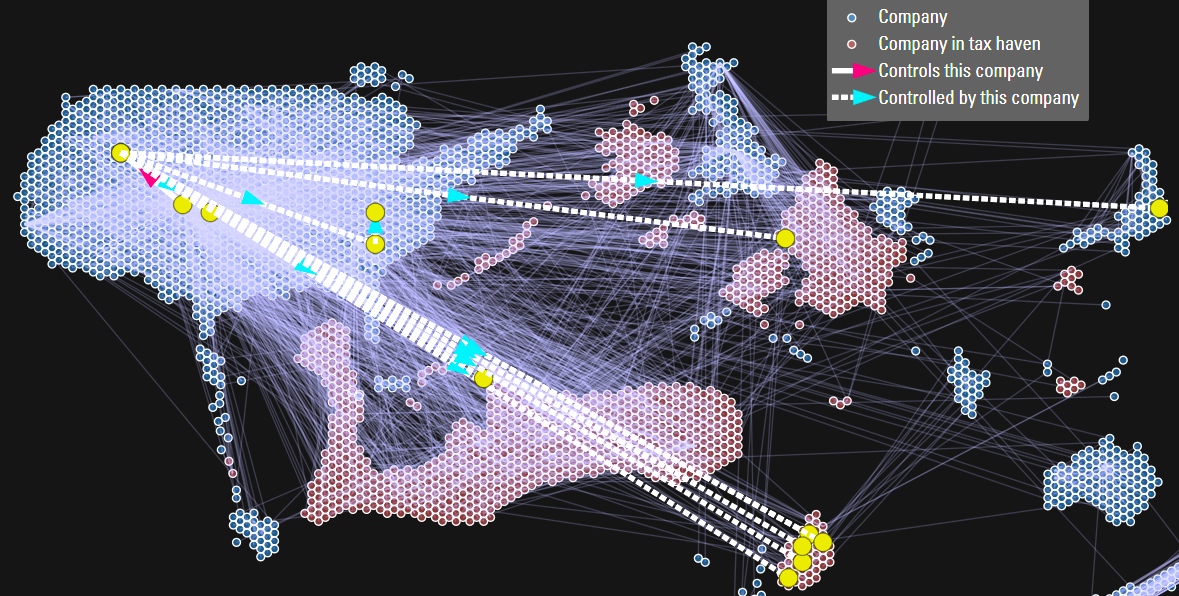
The Obama administration took executive action Monday to fight the trend of corporations “abandoning their U.S. citizenship” using the “inversion” tactic. The move earned praise from a leading opponent of inversions, Citizens for Tax Fairness, which called the administration’s move “a very important first step in removing a major incentive for corporations … to avoid paying their fair share of taxes.”
Monday’s executive action mostly addresses companies that try to get out of paying taxes on hoards of cash they have already collected but are keeping outside of the U.S. in what are called controlled foreign corporations (CFCs) – non-U.S. subsidiaries. By “inverting” and becoming non-U.S. companies, they hope to never pay the taxes owed on that cash.
To address these the administration is putting new rules on strategies these companies use to try to dodge taxes on their non-U.S. CFC cash hoard.
1. New rules on “hopshotch” loans. Until now U.S. companies that have been hoarding cash in non-U.S. subsidiaries (to avoid taxes) could become non-U.S. companies themselves, then loan the money to the new non-U.S. parent company. Monday’s action says loans like these are taxable in the U.S. just as if the U.S. company had repatriated the money from a CFC.
2. New rules on “de-controlling.” After renouncing their U.S. citizenship, some companies have the new foreign parent buy enough stock to take over a CFC. Then the new foreign company accesses those deferred earnings without ever paying U.S. tax on them. Now the new foreign parent would be treated as owning stock in the former U.S. parent. The CFC would remain a CFC, subject to U.S. tax.
3. Limiting use of a “cash box.” This is counting “passive assets” to inflate the size of the new parent corporation. Currently the U.S. owners of the new company can’t have more than 80 percent of the company. (Right, a company that is 80 percent controlled by U.S. owners is “foreign.”) The administration is keeping the 80 percent rule but won’t let companies inflate assets to make it look as if they meet the 80 percent.
4. “Skinny down.” Similarly to the way companies inflate the value of foreign companies to meet the 20 percent foreign ownership rule, the U.S. company can’t deflate its value by handing out “extraordinary dividends.”
5. “Spinversions.” Some U.S. companies invert portions of themselves by transferring assets to a foreign entity, then spinning that subsidiary off to shareholders. They can’t do that now.
Even these simplified explanations are complicated. What it comes down to is there is a loophole in U.S. tax law that lets companies “defer” paying taxes on profits they make outside the U.S. The wave of inversions is just an attempt by these companies to avoid ever paying the taxes due on cash they are hoarding outside the country. This executive action cracks down on schemes to make it look like these companies are owned elsewhere and don’t owe taxes on that cash.
Inversions and Demands for “Tax Reform” – Extortion Plain and Simple
Corporate taxes used to be 46 percent. The corporations played an extortion game, saying lower our taxes or we’ll move out of the U.S. This is what they mean when they say the rates are not “competitive.” They mean other countries are offering us a better tax deal.
The U.S. gave in, “reformed” the tax rate and lowered corporate taxes to 35 percent. Then the corporations went from country to country, playing the same extortion game. One by one these countries gave in to the extortion and lowered tax rates.
So now they’re back, saying that our tax rates are not “competitive” and threatening to leave the country if we don’t lower their taxes. (In reality many of the current inversions are not about “competitive” tax rates at all; that’s just a propaganda point in this extortion game. They are about accessing offshore cash hoards without ever paying the taxes due.)
This is a race to the bottom. After their taxes are zero they will play the same extortion game demanding subsidies and other giveaways. This is what they are doing now, pitting states and cities against each other. “Give us a tax break and we’ll build the plant here.” “Give us a tax subsidy and we’ll move from that high-tax state.”
Republicans are Playing their Part
There is a bill in front of Congress that would stop inversions. Sen. Carl Levin (D-Mich.) has introduced the Stop Corporate Inversions Act of 2014 and Rep. Sander Levin (D-Mich.) has introduced a companion bill in the House.
But if Congress outlawed inversions, the giant corporations would lose the hammer they are holding over our heads in their extortion scheme. So of course Republicans are obstructing efforts to fix the problem, demanding instead that we give in to the extortion.
House Speaker John Boehner’s spokesman blasted the administration’s executive order, saying, “Under President Obama, the United States has the highest corporate tax rate in the developed world. The answer is to simplify and reform our broken tax code to bring jobs home.”
Utah Republican Sen. Orrin Hatch said pretty much the same thing, “America’s tax system is broken to the point that it’s putting our nation at a competitive disadvantage around the globe. That Treasury has opted to move forward with guidance to curb the recent uptick in corporate inversions only further underscores this monumental challenge.”
Frank Clemente at Citizens for Tax Fairness says the “administration’s initiative provides an incentive for Congress to act rather than to continue to avoid action.” Taking action, he adds, “should be a top priority when Congress returns during the lame-duck session.”
3 WAYS TO SHOW YOUR SUPPORT
- Log in to post comments














